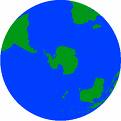Australia Engaged in US-NATO Activities in Ukraine: When “Wheezing Middle Powers” Get it Wrong

Barking up the wrong tree has been a specialty of the Australian diplomatic corps for some years. Piddling on that same tree in some misguided understanding of ownership has been another. The announcement by Prime Minister Tony Abbott – that an interim embassy mission will open in Kiev, and that military advisors will be sent – is one such example. Here, the forest, with its trees, is truly far and distant.
An argument making the rounds is that Australia is showing its “middling” power status in making such gestures. The idea of Australian middle power status is articulated with such insistence you might actually believe it. In truth, it struggles to make the grade, wheezing its way along the track of competition in the hope that someone might notice. That someone, of course, is the United States. Other powers, such as Russia and China, are to be regarded as studied villains of the peace (current and future), notwithstanding the trade being done with them.
The other dreary remark made is that Australian occupation of a seat on the Security Council, or its presence in such forums as the G20 has actually made a difference to both muscle and influence. If you are looking for the role of honest broker, the bridge between dissenting parties, the answer is no. (Abbott’s suggestion that Russia is essentially motivated by roguishness, funding and equipping murderers hardly suggests such a line.) If you are looking for another seat occupied for reasons of clerking duties, that is quite another matter. It that area, Australia excels.
So, into the Ukraine she goes, with promises of “non-lethal” action as a form of payment for “its support and friendship”1 Australians perished in the deadly affair, but Abbott is truly misreading the picture if he thinks Australian personnel are needed as a gesture of assistance. “Australia is truly grateful for Ukraine’s help in recovering the victims and bringing home our dead.”
For one, the Ukrainian authorities did not cover themselves with glory in that affair. There were denials and counter-denials that they did have the necessary weapons system that might have been used in the downing of the flight. There was the practice of charging flights running routes through eastern Ukraine when there should have been a steadfast prohibition of the use of the corridor.
Ultimately, under international aviation law, Ukraine was responsible for activities taking place on the ground, irrespective of whether it was being contested by rebel separatists. None of this matters for a historically disinterested Abbott, who had the answers in advance of any investigation into circumstances around the event. “We are also grateful for Ukraine’s strong support for the criminal investigation into this particular atrocity and in their determination which we share to bring the perpetrators to justice.” The issues are already determined: rebel fighters did it, with Russian help.
The link with Moscow is drawn with unenviable certainty, justifying the need for Australia to rally to the Ukrainian cause with schoolboy conviction. “So, Madam Speaker, the government and I believe the Australian people, would like to repay Ukraine for its support and friendship, especially as Ukraine continues to be subject to active destabilisation and indeed outright invasion from Russia, a country it has never sought to harm.”
Sanctions are being reiterated, and the uranium supply line is being cut. “There will be no uranium sales to Russia until further notice and Australia has no intention of selling uranium to a country which is so obviously in breach of international law as Russia currently is.”
Such talk takes place in a vacuum of history. Russian interests in Russian nationals – very much part of the nationality principle at international law – is not even a footnote in conversation. Ukrainian agitation, Russian response and its very mixed relationship with the separatists, and the interference mounted by foreign powers, have all done their part in making a dangerous situation incendiary.
Particularly troubling are the ever pressing problems posed by a burgeoning NATO alliance. Formed in 1949 to combat the Soviet Union during the Cold War, it has over extended its remit. Foreign wars and engagements keep its soldiers busy. With 28 members, it is one of the largest military alliances in history, boasting a combined expenditure of 1 trillion dollars a year. Its presence is a reminder of continuing US dominance on the European continent. An olive branch, even if a somewhat bare one, is being held out to Kiev by Washington – the door is open for those on our side.
Former US ambassador to NATO, Kurt Volker2 of belligerence to “prove [Putin] wrong.” The suggested recipe is a military one: “For the sake of Ukraine’s integrity as a country, for future European security and for NATO’s credibility as a defence organization, NATO leaders need to make some tough decisions and push back militarily against Russia.”
The dangers posed by this militarisation, along with Canberra’s desire to be more relevantly engaged with NATO activities, has seen that worst tendency in Australian foreign policy realise itself: the longing to be noticed. Many a year has passed since an Australian foreign minister realised that the dictates of geography come first. The political dross, dressed up as strategic wisdom, should come a distant second.
Notes
1 http://www.smh.com.au/federal-politics/political-news/abbott-government-considering-nonlethal-military-assistance-in-ukraine-20140903-10bwj7.html
2 http://www.washingtonpost.com/opinions/nato-must-stand-up-to-putins-threat-to-invade-ukraine/2014/08/28/6097f77e-2ee6-11e4-994d-202962a9150c_story.html
Dr. Binoy Kampmark was a Commonwealth Scholar at Selwyn College, Cambridge. He lectures at RMIT University, Melbourne. Email: [email protected]

